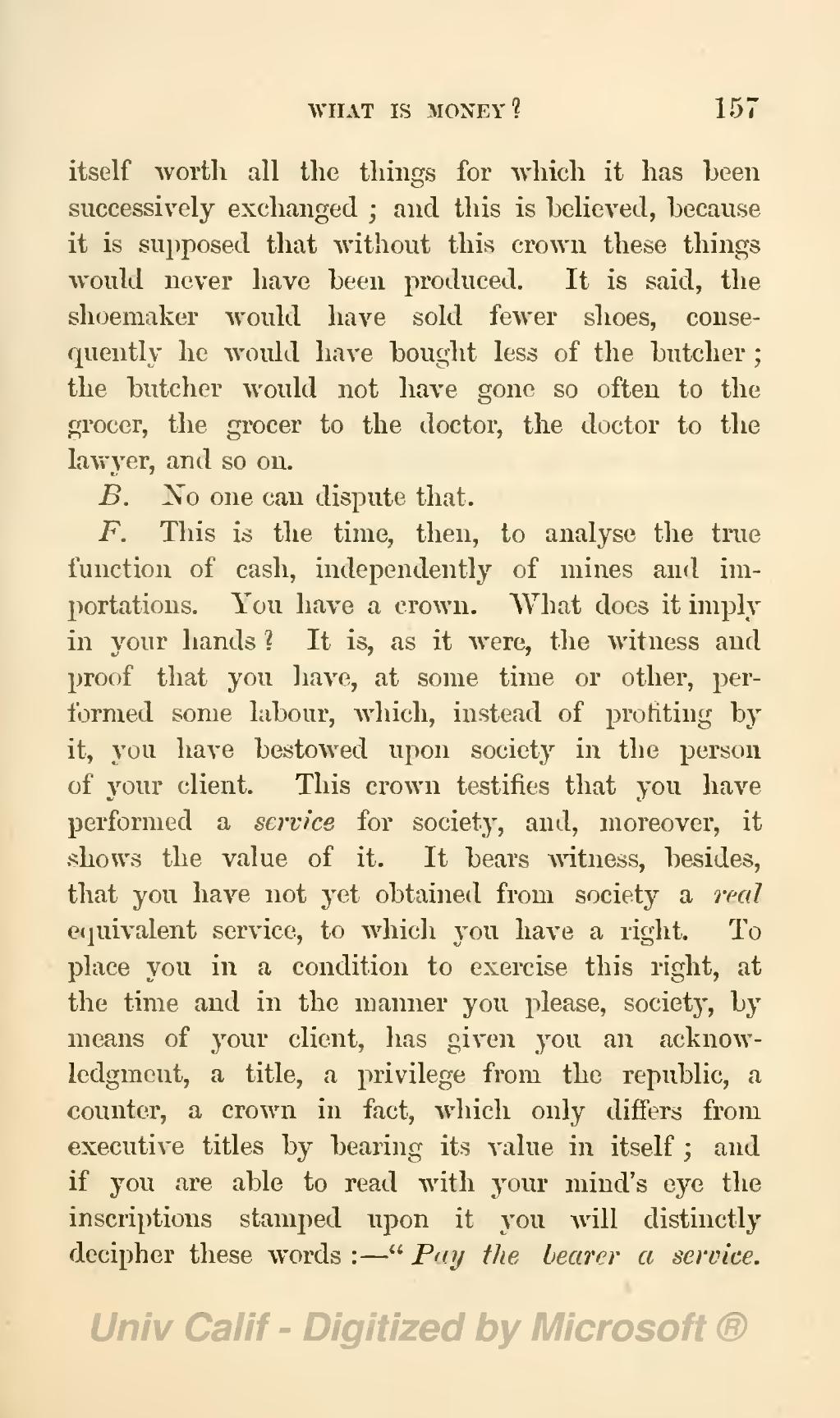itself worth all the things for which it has been successively exchanged; and this is believed, because it is supposed that without this crown these things would never have been produced. It is said, the shoemaker would have sold fewer shoes, consequently he would have bought less of the butcher; the butcher would not have gone so often to the grocer, the grocer to the doctor, the doctor to the lawyer, and so on.
B. No one can dispute that.
F. This is the time, then, to analyse the true function of cash, independently of mines and importations. You have a crown. What does it imply in your hands? It is, as it were, the witness and proof that you have, at some time or other, performed some labour, which, instead of profiting by it, you have bestowed upon society in the person of your client. This crown testifies that you have performed a service for society, and, moreover, it shows the value of it. It bears witness, besides, that you have not yet obtained from society a real equivalent service, to which you have a right. To place you in a condition to exercise this right, at the time and in the manner you please, society, by means of your client, has given you an acknowledgment, a title, a privilege from the republic, a counter, a crown in fact, which only differs from executive titles by bearing its value in itself; and if you are able to read with your mind's eye the inscriptions stamped upon it you will distinctly decipher these words:—"Pay the bearer a service.
